INTERNET, COMPUTER & TECHNOLOGY CRIME
Defending Against Internet and Technology Crimes
Defending against charges related to internet and technology crimes necessitates a deep understanding of both the involved technology and the applicable privacy rights. The legal landscape for technology-related offenses is constantly evolving, with subtle nuances that can significantly impact a case’s outcome. Police actions and legal boundaries regarding technology crimes are often open to interpretation, leading to complex legal arguments.
Specialized Expertise at Smyllie Law
At Smyllie Law, our seasoned lawyers possess extensive experience in defending individuals facing charges related to the internet and technology. We are well-versed in the legal and technological complexities involved in these cases. Our firm is dedicated to representing clients charged with offenses involving computers, the internet, and emerging technologies.
Types of Internet and Technology Crimes
Crimes committed electronically cover a broad spectrum, mirroring offenses in the physical world. Examples include making, accessing, or distributing explicit materials, internet luring, cyberstalking, extortion, fraud, forgery, identity theft, copyright infringement, and various computer-related offenses such as unauthorized access and mischief to data.
Protecting Your Rights in the Digital Age
Individuals often underestimate the extent to which their online activities can be monitored. Every device connected to the internet has a unique identifier, making it possible for law enforcement to trace online actions back to individuals. Understanding the nuances of online surveillance, encryption, and privacy settings is crucial in safeguarding your rights.
Legal Implications of Social Media and Electronic Communication
Law enforcement agencies can gather information from publicly accessible social media posts without infringing on privacy rights. However, obtaining private messages or emails usually requires judicial authorization. The rules surrounding the interception and admissibility of these electronic communications vary, emphasizing the importance of understanding one’s rights and limitations.
Border Crossings and Digital Privacy
While border crossings involve a lower expectation of privacy, there are still constitutional limits to searches conducted by border guards. While routine inspections might not require a warrant, invasive searches, such as those involving electronic devices, are subject to legal scrutiny. Border guards may perform cursory searches of computers or cell phones without a judge’s prior approval, emphasizing the need for awareness at international borders.
Conclusion: Seeking Legal Counsel
This overview provides a general understanding of the legal landscape surrounding internet and technology crimes. However, it is not a substitute for legal advice. If you are facing charges or are under investigation, seeking legal counsel promptly is essential. Our experienced team at Smyllie Law is here to provide guidance tailored to your specific situation. Please contact us to discuss your case and protect your rights effectively.
BOOK YOUR FREE CONSULTATION
EXPERT LEGAL GUIDANCE FOR YOUR CRIMINAL CASES
EXPERT LEGAL GUIDANCE FOR YOUR CRIMINAL CASES
At Smyllie Law in Alberta, we offer a client-focused approach to tackle your legal challenges:
- Seasoned Expertise: Our criminal lawyers bring years of experience to provide you with sound legal advice and guidance.
- Free Consultation: Gain clarity with a complimentary consultation, where we’ll discuss your options and your criminal charges.
- Rights Protection: We’re dedicated to safeguarding your rights in serious criminal cases, ensuring fair treatment throughout the legal process.
Facing criminal allegations can be overwhelming, but you’re not alone. Contact Smyllie Law today to speak with our experienced lawyers. We’re here to offer the professional guidance and support you need for your legal concerns.
Choose Smyllie Law for practical, no-nonsense legal assistance in Alberta.
